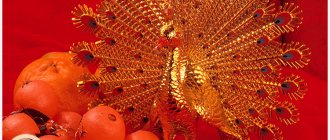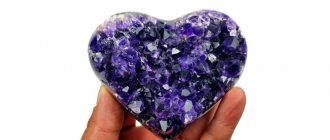| Greek . — rhoa lat . — punica ———— The pomegranate tree, which had been cultivated for a long time, was widely spread in the Mediterranean and the Middle East by the Phoenicians. It has taken root as a source of noteworthy fruits and medicinal remedies in warm climates. An ancient symbol whose variety of meanings is determined by the color and (moreover) structure of its fruit: numerous grains surrounded by juicy pulp and covered with a leathery shell. The pomegranate is an ancient symbol of the Great Goddess, which was widespread in the cultures of the Mediterranean area and Asia Minor. In subsequent times, it acted as a permanent attribute of such numerous goddesses who patronized love, marriage and fertility: Astarte (Ishtar), Aphrodite (Venus), Athena. Basic values:
|
Antiquity
Known to the ancient Romans as the “Carthaginian apple”. Attribute:
- Hera (Juno) as a wedding emblem;
- goddesses of the mysteries Persephone (Proserpina);
- Demeter (Ceres);
- Aphrodite (Venus);
- Athens;
- Attis;
- Dionysus, a plant grown from his blood (filled with it);
The pomegranate tree was also the tree of T(F)ammuz and Adonis.
According to the Eleusinian mystery cult of Demeter and Persephone (Ceres and Proserpina), the latter had to remain part of the year in the underworld because she ate a pomegranate seed. Since that time, in the symbolism of the pomegranate, its correlation with fertility and love fades into the background and the pomegranate is considered as a symbol of mystical marriage or union. In Ancient Rome, a pomegranate apple in the hands of Juno, the patroness of married women, symbolized the sacrament of marriage. Brides wore wreaths of flowering pomegranate branches.
They settle in with special nymphs - royads. The mother of Attis, the lover of the “great mother” Cybele, became pregnant from contact with the pomegranate tree. Pomegranate trees were planted on the graves of heroes (to ensure abundant continuity???). In ancient Rome, the pomegranate tree, blooming with fragrant, fiery red flowers, personified love and marriage with fertility. The brides carried wreaths of flowering pomegranate branches.
Pomegranate talisman and its feng shui meaning
Feng Shui also considers pomegranate a symbol of abundance of fruits. This fruit has been known to mankind for more than 5 thousand years. It is a favorite fruit in Egypt, Ancient India, and also Iran. Poets and writers dedicated their works to the fruit. A mineral was named after the fruit, which in its appearance is very similar to the fruit. Therefore, the meaning of a pomegranate as a gift as a decoration or souvenir for the home is exactly the same as the meaning of the fruit.
According to Feng Shui, the guarantor mineral symbolizes eternal love. He is the patron saint of lovers and a talisman for those who have found their soul mate.
The mineral is also great for creative people. He patronizes the servants of art and helps them discover hidden talents and develop them.
In ancient Eastern philosophy, the fruit of the guarantor is considered the happiest. He patronizes both those who want to find their soul mate and those who are already in marriage. Happiness is associated with a family idyll and children as a continuation of the family line. Pomegranate seeds are identified with having many children, as the pinnacle of family happiness. And children born and raised under the auspices of pomegranate will definitely be smart, and everything will work out well in their lives.
Feng Shui philosophy experts advise taking advantage of the protection of the pomegranate, in any of its forms: it can be jewelry made of natural stone, various decorative elements in the house using the mineral, even paintings with its image and glass interpretations of the fruit.
Symbol of health and longevity
The healing powers of pomegranate are magical. Images of the fruit were found in ancient pyramids, it was embroidered in patterns of Byzantine fabrics, and ancient Greek ornaments abound in it.
Egyptian pharaohs enjoyed drinking a healing drink from the juice of the fruit. And the Prophet Muhammad believed that pomegranate would bring great benefits not only to a person’s physical health, but also to his moral and psychological state, as it would heal him from anger and hatred.
The ancient Greeks were sure that the pomegranate fruit bestowed immortality, so on Olympus the gods consumed it daily.
One of the ancient Greek legends says: Hades stole the beautiful Persephone (daughter of Demeter - the goddess of fertility) and irrevocably took her to his underground kingdom, for this her mother punished the earth with infertility, she stopped growing fruits. Hades had to let the beauty go to her mother, but before that he treated her to a pomegranate. Having discovered the unsurpassed taste of the fruit, the girl herself returned to Hades every winter.
Symbol of eternal love
The pomegranate also symbolizes eternal love, over which neither time nor circumstances have power.
So, according to an ancient legend, there was one couple in love on Earth, but on their wedding day, evil spirits took them away from their native land. Waking up in a foreign land, they unsuccessfully searched for the way home, until they lost themselves in a thin, restless sleep. In this dream, the young man was informed that the two of them could not be saved, and they ordered him to kill his beloved. But the young man instead pierced his heart with a knife and immediately turned into a pomegranate tree, picking the fruit from which the girl returned home. Since then, she began growing pomegranate trees at home, which have spread throughout the planet.
Christianity
In the Christian era, the above-mentioned symbolism was supplemented by references to divine grace and heavenly love. In addition, many seeds under a hard skin are considered as an image of people united by some kind of community: kinship, religion, ideology, etc.
It is based on ancient associations with Proserpina and Attis, which received a new understanding:
- its red juice became a symbol of the blood of martyrs;
- a polyspermous plant collected under the skin - people united by a church community.
- tough skin and sweet juice - outwardly strict, but inwardly kind spiritual shepherd.
As a symbol of the Resurrection, the Christ Child holds it.
The virginity of the Virgin Mary is personified by the pomegranate tree under which she sits with a unicorn.
Attribute: John of God cross-crowned garnet
Caritas. This is the name given to the Order of Compassionate Brothers - an international organization (society) that provides assistance to the poor.
Fertility symbol
The pomegranate is mentioned among the seven plant species that are symbols of Israel's fertility. The pomegranate was presented to Moses by the spies returning from Canaan. With such an offering they wanted to confirm the fertility of these places.
It should be emphasized that it is no coincidence that pomegranates are considered a symbol of fertility. From just one tree, reaching 6 meters in height, you can collect up to 60 kg of fruits, and the fruits themselves reach quite impressive sizes: there are specimens with a diameter of up to 18 centimeters.
Emblematics
The fruit of the pomegranate tree.
- Everything that is good in me is hidden.
A symbol of preserving and improving the bestowed natural qualities. [EMSI 49-8,10]
In Baroque symbolism, it looks like a fruit cracked in the fullness of its seeds and means the desire for charity and mercy, generous reward for the manifestation of compassionate love (lat. caritas). A symbol of the unity of many under one leadership (Church or secular monarch).
Attribute of personified Chastity.
Symbol of wealth
Most peoples consider pomegranate fruits and flowers to be a symbol of wealth. The Koran, the holy book of Muslims, mentions pomegranate trees growing in the Garden of Eden. In addition, there is a version that in the biblical legends associated with the Garden of Eden, the forbidden fruit with which Eve was seduced was not an apple at all, but a pomegranate.
Since ancient times, the wonderful fruit has been a symbol of wealth and financial well-being. His image was often applied to talismans that rewarded their owners with wealth and success in life.
Basic rules for placing indoor plants
If you are going to place indoor plants in a garden, there are several basic rules that will apply no matter in which room and what kind of flowers you place.
- No artificial flowers and no dried out plants! If a flower is dead and cannot be restored, throw it away without regret, otherwise it will absorb positive energy.
- Even if the plant is very favorable and simply necessary in your apartment from the point of view of Feng Shui, but you don’t like it, you shouldn’t have it! Any flower feels the attitude towards it and will not grow in an atmosphere of antipathy.
- Plants should be placed in corners, in niches, arches, on shelves, inside recesses
, etc. Try not to place flowers in pots closer than a meter to beds, sofas, and chairs. - The more a flower loves moisture and abundant watering, the brighter the pot it needs. Ideally, such plants need pots in warm colors - yellow, orange, red. And for those who like dryness, on the contrary, cool shades - blue, green.
- According to Feng Shui, all plants for the home are divided into those that have male energy (yang) and those that have female energy (yin). For balance and harmony in the apartment there must be both.
The meaning of tattoos for men
For young people, the pomegranate symbolizes masculine strength and the ability to have many children. Men can get such a tattoo in order to be successful in love and enjoy the attention of women. On the other hand, with the help of a pomegranate tattoo, a man communicates his maturity and readiness to enter into an alliance with a specific woman. Such young people are fed up with entertainment and strive for a quiet family life.
The red fruit symbolizes the rich energy potential of a man. The owners of this tattoo are physically and spiritually developed, quickly develop in their careers and can quickly restore their strength. Such people have boundless optimism and a great will to live.
About the healing properties of pomegranate
Everyone knows about the ability of pomegranate to increase hemoglobin levels in the blood. It is often recommended to be eaten for anemia. In addition, it is believed that pomegranate is an ideal remedy for cleansing the body; it helps damaged organs and tissues recover quickly; supports and stimulates cardiac activity; protects the respiratory tract from illnesses; is an antipyretic and anti-allergenic agent. People are advised to wear jewelry interspersed with garnet when they have a loss of strength, a depressed mood, or headaches.
The healing properties of pomegranate depend on its color. For example:
If there are problems with the immune system, then in this case pomegranate will come to the rescue.











